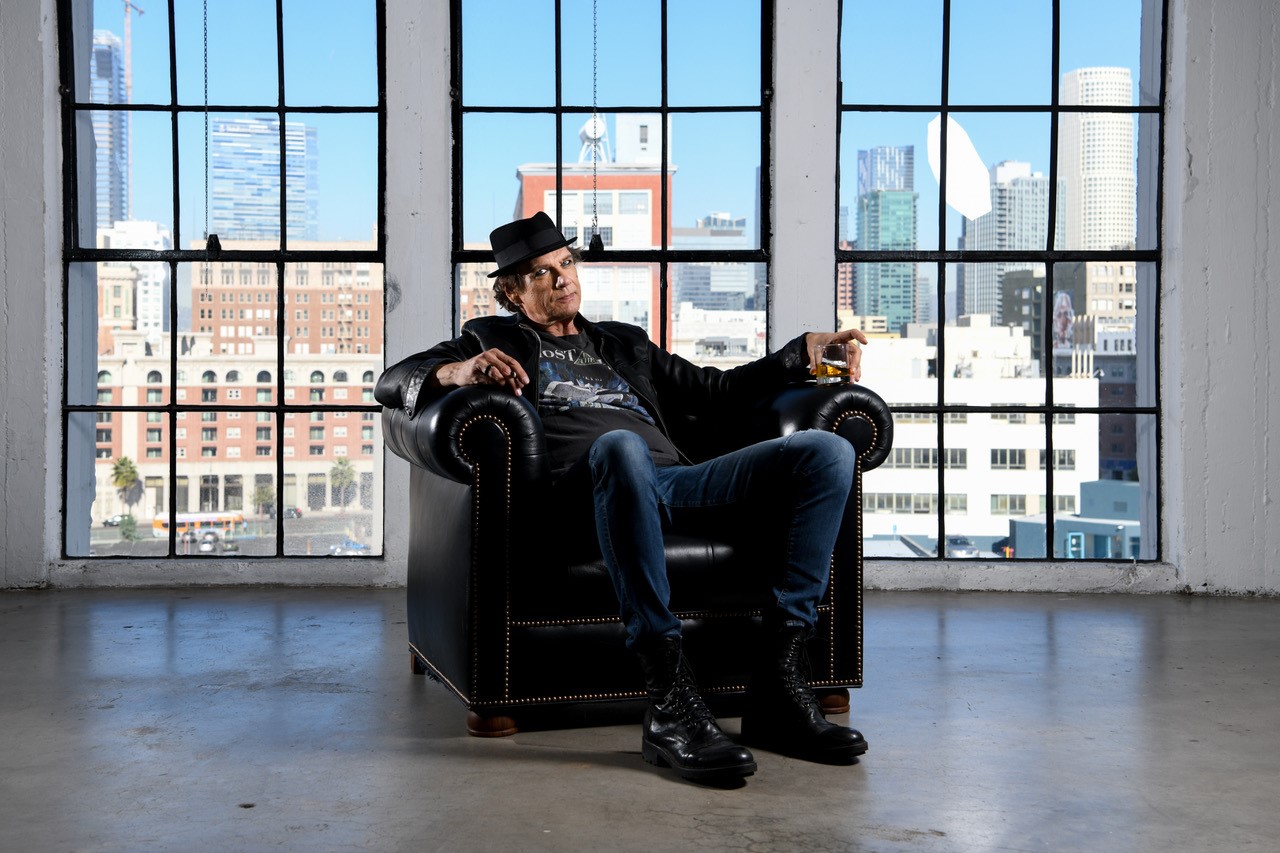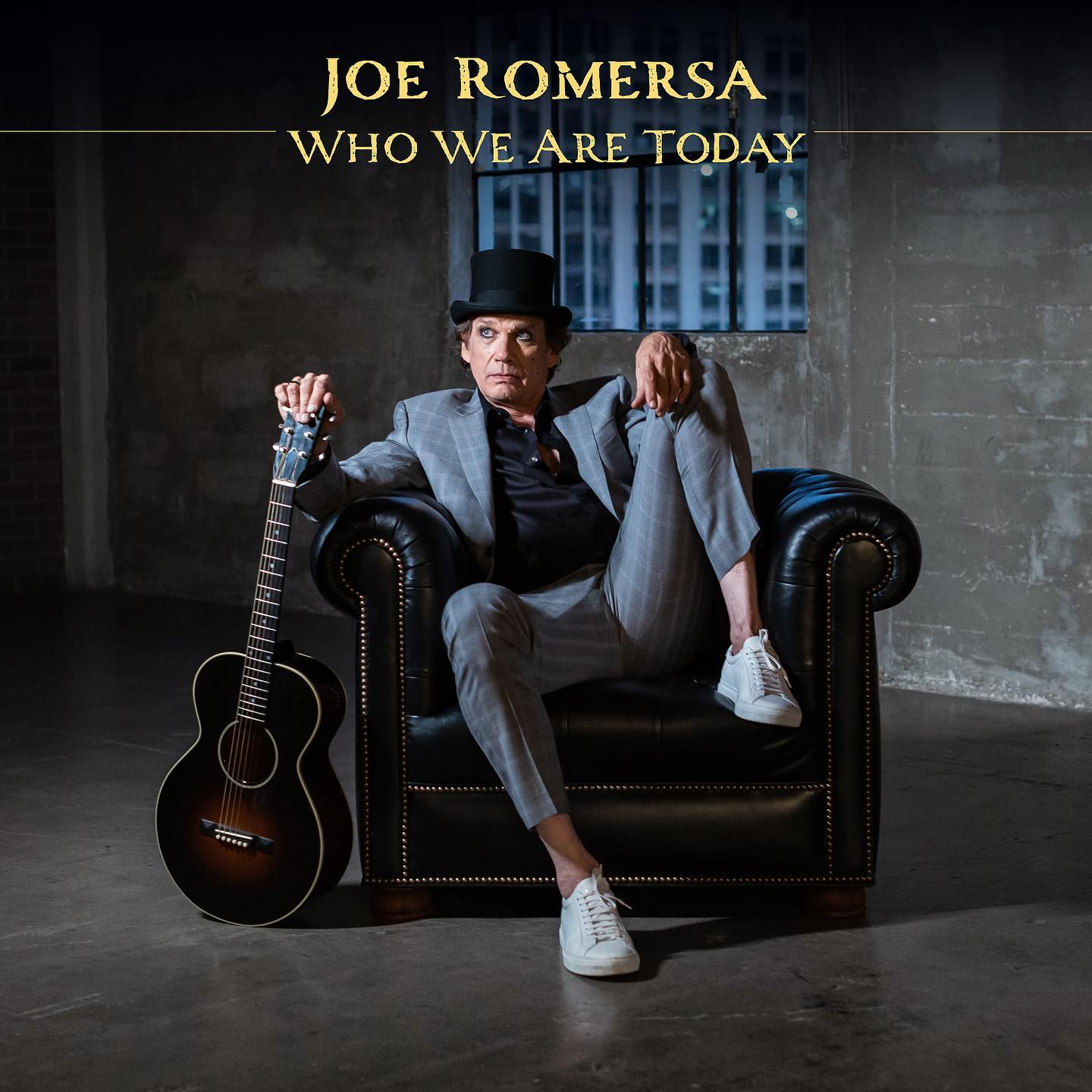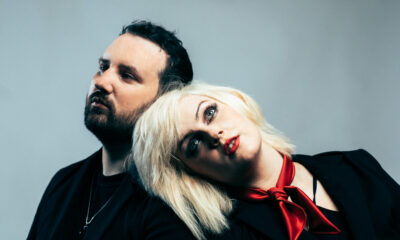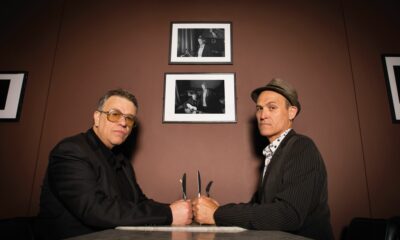Blues
Joe Romersa on ‘Who We Are Today,’ Working With Mark Needham, and His Prolific Career

Our friend Joe Romersa is creating quite the buzz with his new record Who We Are Today. Released on April 17th, and featuring the hit single “Raincheck” (which we premiered in March), the album is an introspective look into life in modern times. Examining common human experiences, Romersa covers a myriad of issues, such as homelessness and the path back from it and the various feelings and emotions that come with the end of relationships.
Who We Are Today is also his first collaboration with Mark Needham, a Grammy-nominated producer who has worked with a who’s who of rock and pop stars, including Fleetwood Mac, Chris Isaak, Dolly Parton, and Shakira. Romersa described the album as a “photo album of songs full of snapshot moments of my life put to music,” a compilation of songs he has written over the years, some of which he has sat on for decades.
We couldn’t pass up the opportunity for a conversation with Romersa about his career and Who We Are Today. We recently spoke to him about what drives him after four decades in the industry, how he approached the album as a songwriter rather than a producer/engineer, and his work as a voiceover actor in many anime series.
https://www.youtube.com/watch?v=uCQb35pixDE
You’re over 40 years into an illustrious career in the music industry. After all this time, what do you think it is that keeps you wanting to come back for more?
Joe Romersa: “Masochistic tendencies? Sometimes I feel like giving up; the music business can be a tough mistress. I come back because I love it. When I release a song, and a listener comments on how it makes them feel good or that they enjoyed the music or can relate to the music somehow, it makes me feel good. It makes me feel like I have a purpose. I like to make people feel good. I write songs about life, and life isn’t always pretty and cheerful. I think that people connect with my music because life is just messy.”
We obviously know you’re very active as a sound engineer, but how active are you as a songwriter? Is it something you do a lot of?
“Not so much. Engineering is more straightforward because the finished project is judged more objectively, where songwriting is very subjective as to the quality. With songwriting, I am more vulnerable to rejection and criticism. And it’s about the money. As an engineer, you get paid once the job is done. With songwriting, you may never see any money. I’m not suggesting that I write music for money, but I like to eat, and I want to sleep in a comfortable bed. Money makes all that possible.”
Your new solo album, Who We Are Today, was released on April 17th, an album with a lot of different styles and genres on it. When did you begin working on this album, and how long did the whole process take?
“I was approached in August 2020 about releasing another solo album. The record label had heard some of my demos and thought there was enough there to greenlight the project. Producer Mark Needham and I went through and selected the tracks that would end up on the album, I think in October. We spent four days at East West Studio in Los Angeles recording the tracks right before Thanksgiving. Mark had the project mixed by the end of December, and we got it back from mastering in January.”

Artwork for ‘Who We Are Today’ by Joe Romersa
Did you have an initial vision of what you wanted Who We Are Today to sound like? Or did its musical direction more take shape as you started to write and record?
“I have to give that credit to Mark. I gave up a lot of the control that I usually have on my music, but I trusted Mark. And it paid off in a big way. Mark took the songs, with all their diverse styles and influences, and wove together a cohesive musical story. Mark’s decision to record with all the musicians in the same room, the incredible talent he selected, and of course, his mixing magic is what shaped the final sound. You got to remember; we recorded this album during the COVID-19 lockdown. It was definitely interesting.”
Judging by its different styles, I’m assuming you allowed yourself a lot of musical freedom to write and record whatever felt right to you at that point in time. Would that be a correct assessment of how you approached this album?
“To me, songwriting is like sex; if you’re thinking about it too much, you’re not feeling it. Allowing myself musical freedom would suggest I have any kind of musical self-control, but I don’t; I just write what I feel.”
You mentioned that Who We Are Today is like a photo album of songs that capture different moments in your life. Did you look to specific times or events in your life for inspiration when it came to writing lyrics?
“Yes and no. Most of the life events that are the kernel of inspiration for a song come to me years after the event. I seldom write about things, usually painful, at the time I am experiencing them. ‘Don’t Rain On My Day’ was a reaction to my ex, who would discourage me and caused me to doubt myself as an artist and a singer. ‘I’m Coming Home’ was written after my girlfriend challenged me to write a song about homelessness to ease me out of a spell of writer’s block. The song looks at how fragile our hold can be on financial security and how quick you go from respected to rejected when your life slides downhill.”
This is your first project with Mark Needham, a well-respected, Grammy-nominated producer. How did Mark become involved in this album? Have you known him for quite a while now?
“I met him for the first time when we approached him about producing my album. But Mark and I have a lot in common and much to talk about in the smoking section. He listens to the artist, and he makes things easy. The record label introduced me to Mark. I had a bad experience with a producer a couple of years prior. I was hesitant to work with a producer again. The record label was pretty insistent that I at least met with Mark. After that first meeting, though, I trusted him and respected his input. I knew I was in good hands.”
Obviously, you know your way around a recording studio. Why not produce Who We Are Today yourself? What made you want to bring in a producer?
“To be honest, I asked the label the same thing. But, the advantage of having a producer is that they help make decisions on what to leave in what to take out. Sometimes I just have too many ideas packed into a song. A great producer like Mark helps to focus the music on what matters most. Mark is also a phenomenal mixer. With Needham at the board, I could listen to my music strictly as an artist and not think about what tweaks and trims were needed from the engineering side. It was very freeing to just be the artist.”
One of the most interesting aspects of your career is your work as a voice-over actor in dozens of anime series. How did you first get introduced to this world and when did you realize you had a talent for doing voice-over work?
“I was introduced to voiceovers in anime through my engineering job at Magnitude 8 Post on Laurel Canyon. It was just one of those right place right time situations. After the producers heard my voice, they thought I would be a good anime thug. Voice acting and singing are very closely related. The tone and timing that singers rely upon carries over to dubbing in anime which I think helped me. I like doing voice acting, and I am good at it, but I’m dyslexic, and it can be very frustrating reading the scripts and getting things right, which tends to take longer. I’ve been around anime all my life, my mother was an animator, and it’s an art form I do enjoy.”
As a producer/engineer, you’ve worked with a lot of impressive musicians like Art Garfunkel, Linda Ronstadt, and John Prine. Do you have a favourite album or project that you contributed to where you thought the result was even better than you expected?
“Probably the Soy Cowboy project. I was initially brought in as the producer/engineer. But (Vince) Nicoletti, who founded the project, decided to bring me in as the lead singer. This was the first time anyone asked me to sing anything more than background vocals. The next thing I knew, we were on KCRW. It’s a crazy story, but the result was definitely better than I expected.”
Do you have any other projects on the horizon? Both in terms of your own and perhaps engineering for other artists?
“Ha! Now you sound like the record label; they ask me the same thing! Some artists go into the studio, have writing sessions and come out the other side with an album. I tend to record songs as they come to me, then when I am ready to put out an album, I look at how the songs fit together before I decide to do an album. I always have tracks in progress; sometimes, I just release them as singles. I am re-releasing a song called Love, and You that Mark Needham co-produced. Released initially on Enough, we gave it more of a Townes Van Zandt sound which was fun.
I am also working on ‘2021,’ a poetic tribute to a contest I won back in 1973 where we were asked to predict what music would sound like in 2021. I also co-own Goal Post Productions, where we do sound design and engineering for film and video. We bought a house in the Hollywood Hills right before the pandemic hit. It’s currently undergoing extensive renovations, but I look forward to having an in-home studio to write and record my music again. And this time, a studio with an inspiring view!”
-

 Alternative/Rock6 days ago
Alternative/Rock6 days agoThe Warning Shake the Foundations of a Sold-Out Leeds Stylus [Photos]
-

 Music2 weeks ago
Music2 weeks agoTake That (w/ Olly Murs) Kick Off Four-Night Leeds Stint with Hit-Laden Spectacular [Photos]
-

 Alternative/Rock6 days ago
Alternative/Rock6 days agoThe V13 Fix #011 w/ Microwave, Full Of Hell, Cold Years and more
-

 Alternative/Rock2 weeks ago
Alternative/Rock2 weeks agoThe V13 Fix #010 w/ High on Fire, NOFX, My Dying Bride and more
-

 Features2 weeks ago
Features2 weeks agoTour Diary: Gen & The Degenerates Party Their Way Across America
-

 Indie6 days ago
Indie6 days agoDeadset Premiere Music Video for Addiction-Inspired “Heavy Eyes” Single
-

 Folk7 days ago
Folk7 days agoKatherine Perkins Strikes the Right Tone with Her “Hold On” Music Video Premiere
-

 Country1 week ago
Country1 week agoBrooke Ashton Chats About Her “Someone” Single, Creative Process, and More!














